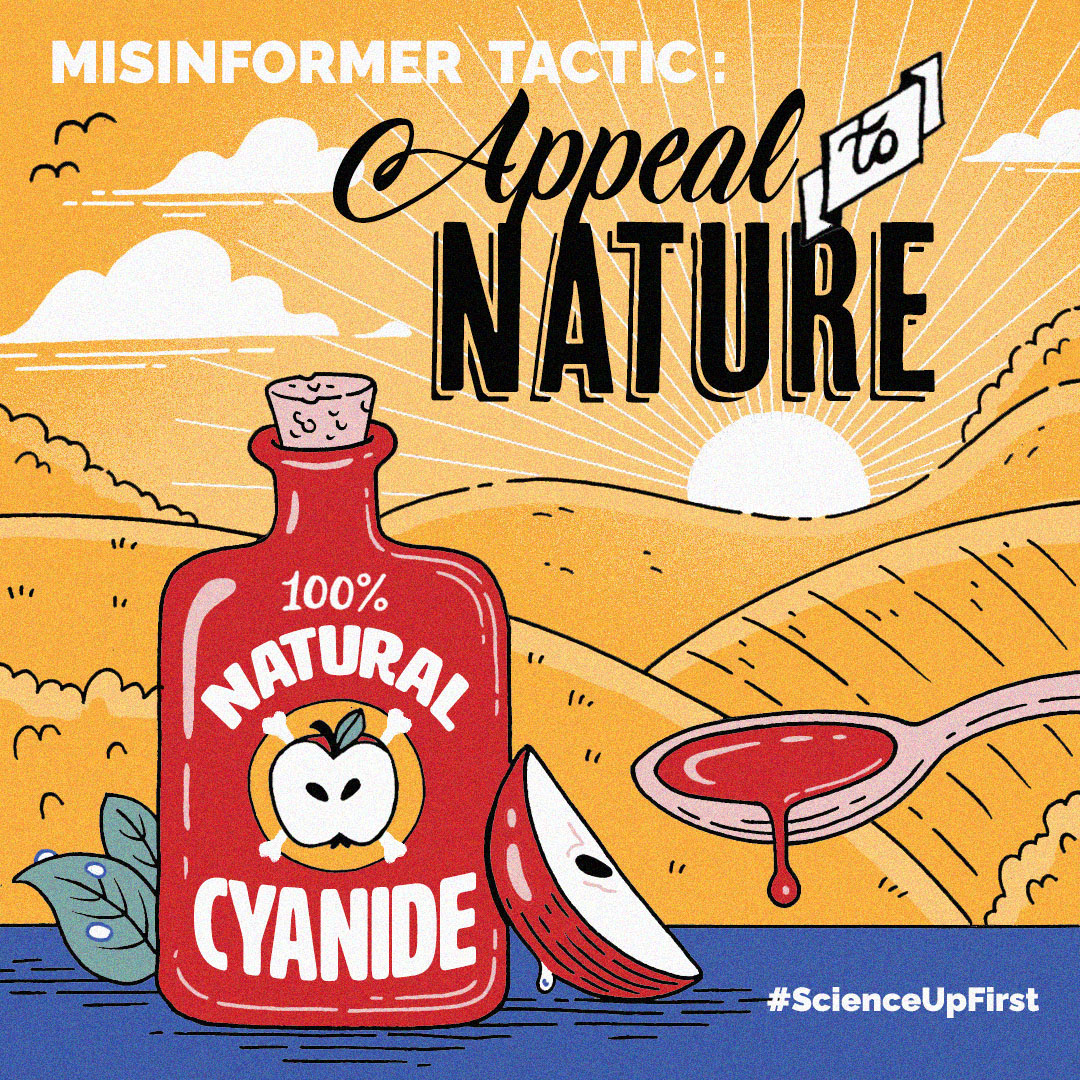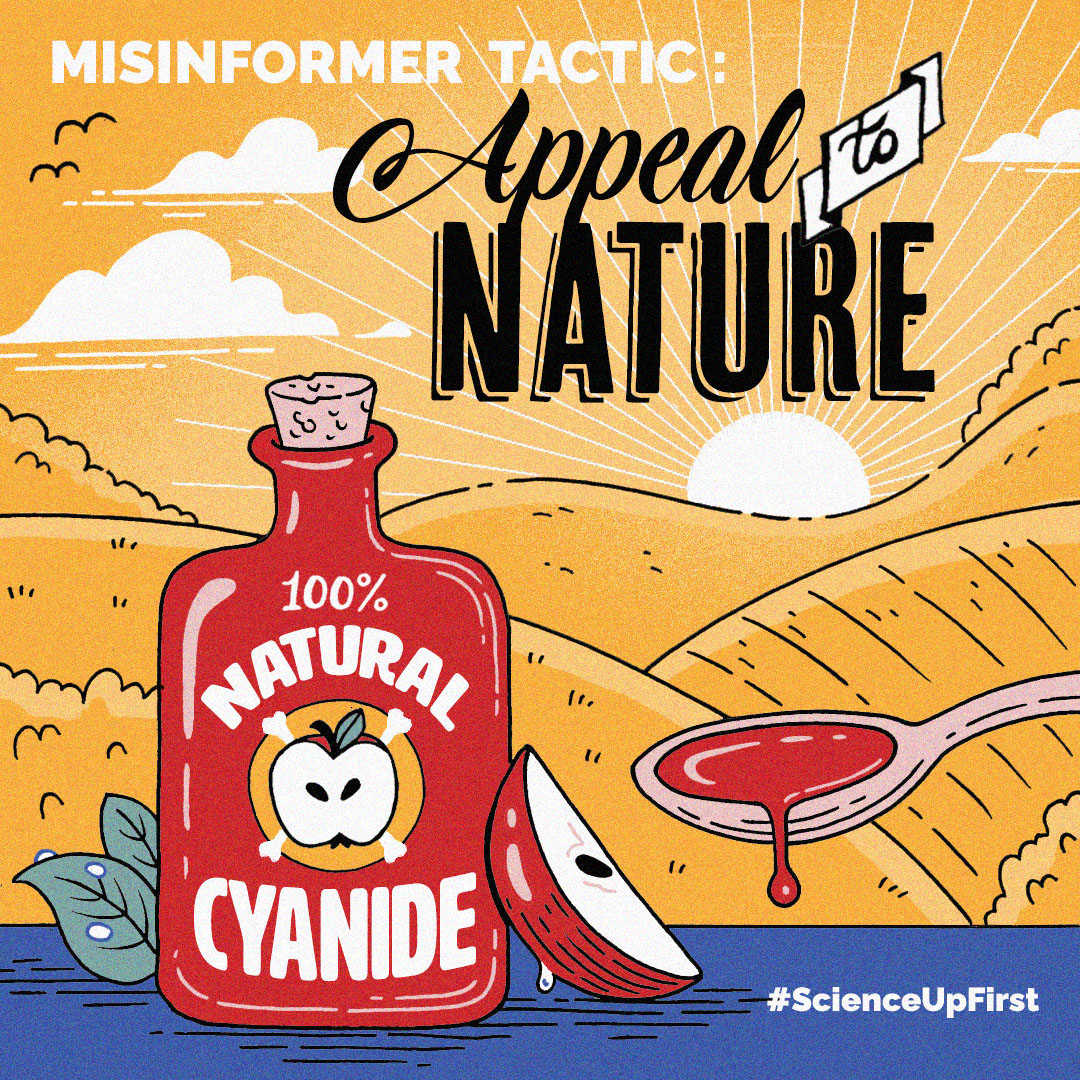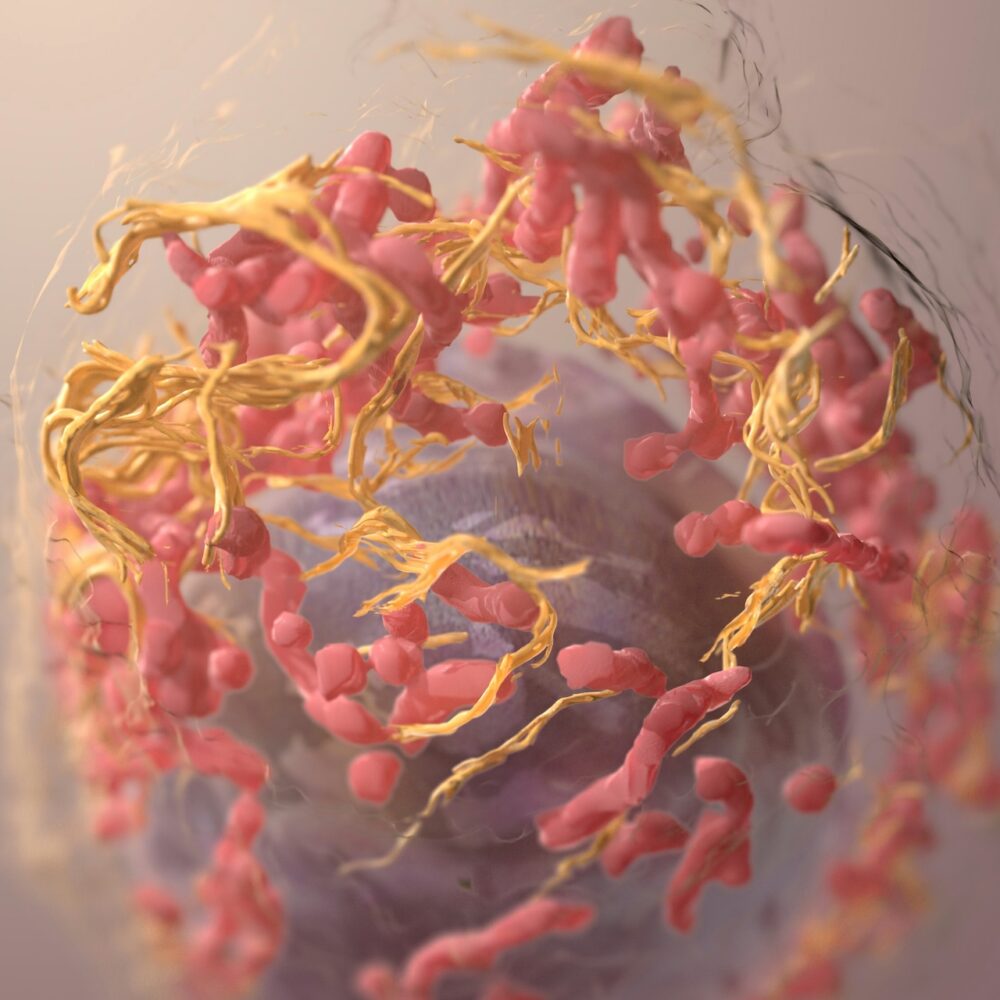
Is “natural” always better?
A lot of us have a bias towards things that appear “natural”, “organic”, or “pure”. Many are willing to pay more money on foods and medicine referred to as natural. Some believe cigarettes labeled natural are less harmful – although this is not true.
This is the cognitive bias known as Appeal to Nature.
But natural does not always mean better or safer. As the illustration suggests, harmful substances like cyanide can come from nature. Apple seeds contain a substance that releases cyanide into the blood stream. Note: don’t stress, apple seeds in small amounts do not contain enough cyanide to cause harm.
This bias can lead to some dangerous decisions in the context of COVID-19. For some this might include a preference for “natural immunity” over vaccines. It is true that both can produce a strong antibody response. But natural immunity means exposing yourself and those around you to an unpredictable virus. A virus that can cause severe illness, lifelong health repercussions, or death. Vaccines offer safe, predictable, and effective protection from COVID-19. Natural immunity does not.
Thanks to Jordan Collver for collaborating with us on this post. Jordan is an illustrator and science communicator specializing in using the visual and narrative power of comics to explore themes of science, nature, and belief.
We’re working on a series of misinformer tactics with Jordan so stay tuned for more.
Check out his work on his website and on Twitter.
Share our original Tweet!
Is "natural" always better?
— ScienceUpFirst | LaScienced'Abord (@ScienceUpFirst) January 4, 2022
Many of us have a fondness for things that seem "natural". However, that does not necessarily mean that it is not dangerous!
This is the cognitive bias known as a call to nature.
[1/4]#ScienceUpFirst pic.twitter.com/M5p0tqj4uR
View our original Instagram Post!




